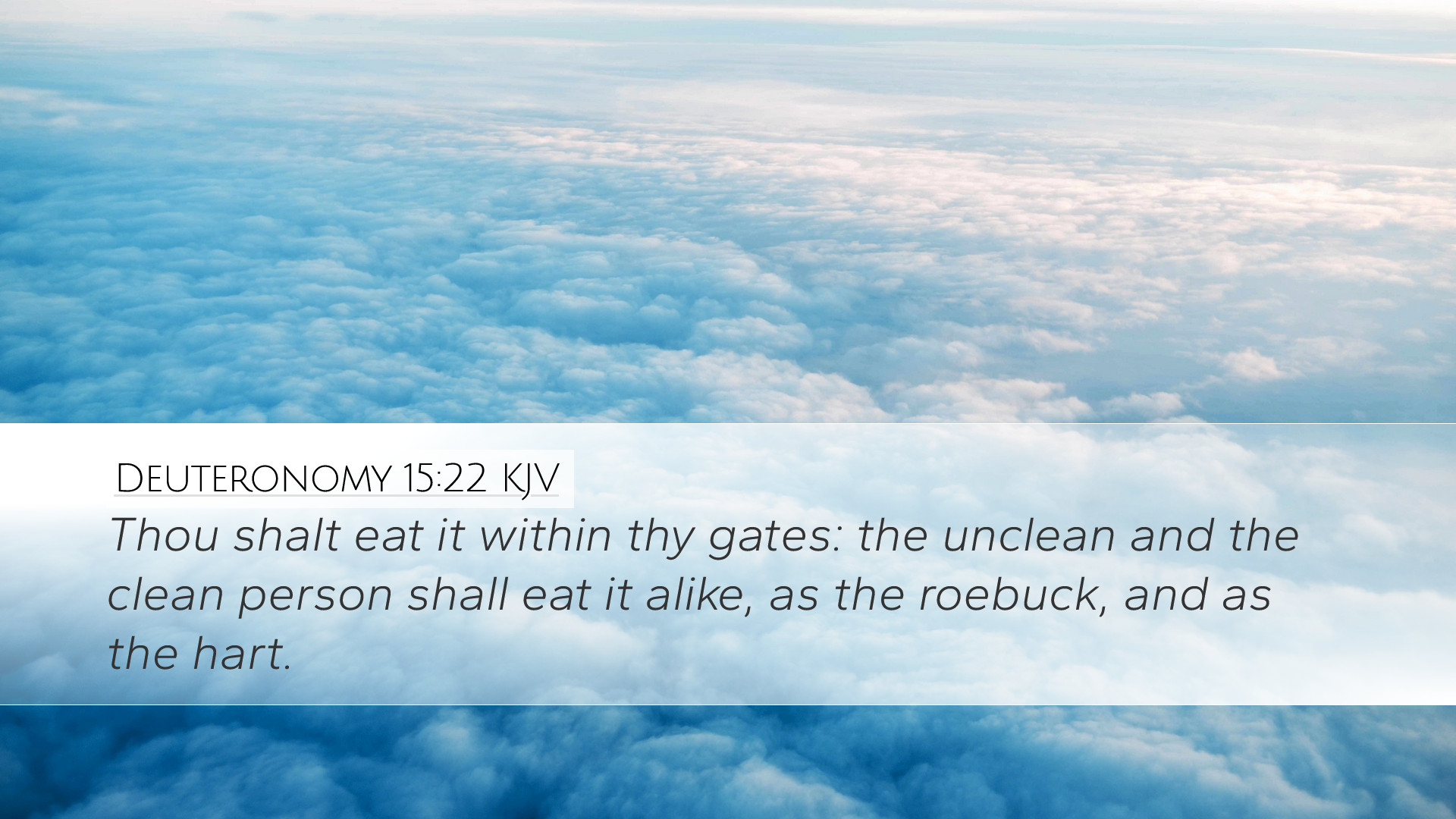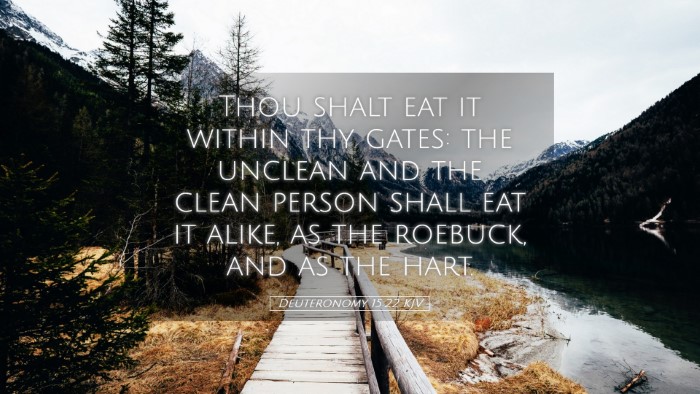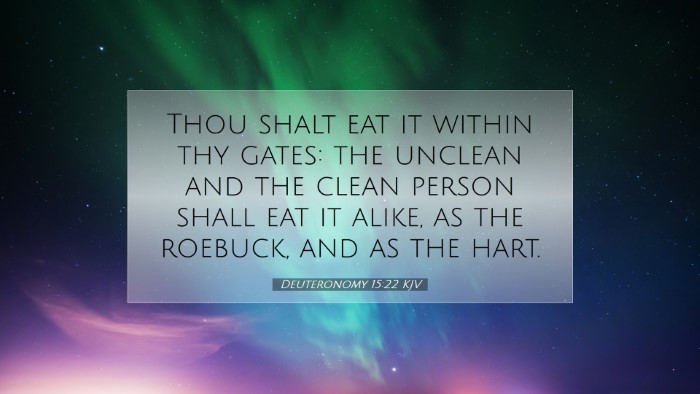Commentary on Deuteronomy 15:22
Deuteronomy 15:22 states, "You may eat it within your gates; the unclean and the clean alike may eat it, as the gazelle and the deer." This verse is a part of the broader discussion on the treatment of animals and the regulations concerning sacrifices, dietary laws, and communal living. Below is a combination of insights from respected public domain commentaries.
Contextual Overview
Deuteronomy is primarily a reiteration and an expansion of the Law given to Israel. This chapter focuses on the laws regarding debt release, the poor, and compassionate living among the community. Verses like Deuteronomy 15:22 serve to illustrate the care and provisions made for all members of society, regardless of their ceremonial status.
Insights from Commentators
Matthew Henry's Commentary
Matthew Henry reflects on the inclusivity of this commandment, emphasizing God's concern that both the clean and the unclean may partake of the sacrifices and foods permissible under the Law. He notes:
- All are Welcome: The emphasis on both clean and unclean reflects God's view on community and fellowship, suggesting that God's provisions are not exclusive.
- The Gazelle and the Deer: By referring to common animals, Henry underscores the idea that these rules are practical and attainable for the average Israelite, encouraging a simpler, more communal approach to God’s provisions.
Albert Barnes' Notes on the Bible
Albert Barnes provides a detailed explanation of the verse, highlighting several theological and practical implications:
- Accessibility of Food: Barnes remarks on the importance of ensuring that the food is accessible within the gates of one’s dwelling. This representation of home indicates a welcoming atmosphere fueled by divine grace.
- Symbolism of the Gazelle and Deer: The inclusion of these animals symbolizes the liberation of God's people; they are not “sacrificial” in nature but rather denote the bounty of life that God provides.
- Unclean and Clean: The permission for the unclean to partake alongside the clean serves as a metaphor for universal access to God’s grace, which is not limited by ceremonial law but encourages community support.
Adam Clarke's Commentary
Adam Clarke interprets this passage with a pastoral lens, recognizing the socio-religious dynamics at play:
- Communal Living: Clarke points out that the verse promotes equality within the community, advocating against discrimination based on ritual purity that would otherwise alienate members from partaking in communal resources.
- Spiritual Application: He draws a parallel to the New Testament message where all believers, Jew and Gentile alike, can partake in the grace offered through Christ without fear of rejection due to past conditions or perceived uncleanliness.
Theological Implications
The theological ramifications of this command are significant for understanding God's nature and His desires for His people:
- Covenant Community: The permission for all to eat signifies that all members of society have a role within God's covenant community, reflecting on God's inclusive invitation to all who seek Him.
- Grace Over Law: This passage foreshadows the New Covenant principle where grace supersedes the strict adherence to law, inviting a broader understanding of holiness that encompasses all humanity.
Practical Applications
For pastors, students, theologians, and scholars, Deuteronomy 15:22 encourages several practical applications:
- Fostering Inclusivity: The church should strive to create welcoming environments for all individuals, emphasizing the importance of community and fellowship.
- Equipping Leaders: Ministry leaders should be educated on these principles to help guide congregations in understanding that everyone is invited to partake in the life and love of Christ.
- Sacred Community Building: Every action and law given by God seeks to build a deeper, more meaningful community motivated by love, equality, and service to one another.
Conclusion
Deuteronomy 15:22 thus illustrates a foundational principle of God's Law: that the community of faith is meant to be a space of acceptance, nurture, and care, echoing the heart of sacrificial love evident throughout Scripture. This verse serves as a reminder of the grace that flows within and through the boundaries established by God, encompassing all who seek His provision and presence.


